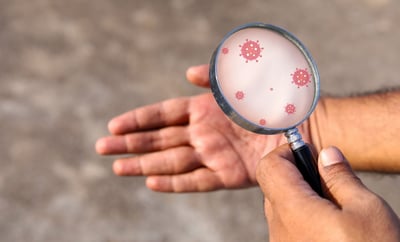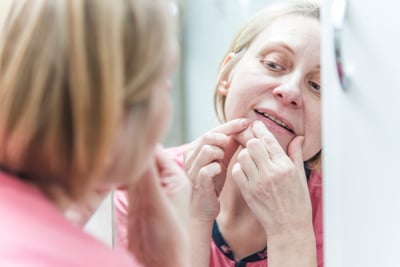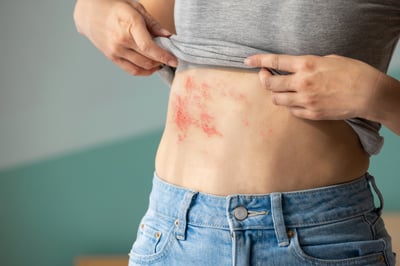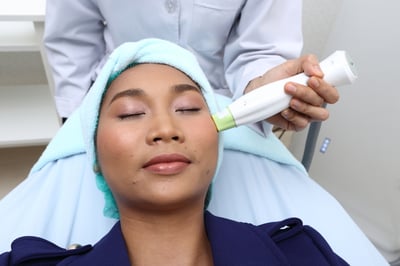
Menopause, which officially begins one year after a woman’s last period, can bring some noticeable changes to the skin and hair. As hormone levels drop, your skin can become dry and thin. You may also notice more hair on your face and less on your scalp. Here are the most common skin, hair, and nail changes you may experience during menopause.
You may bruise more easily.
As estrogen levels fall, skin becomes thinner and can bruise more easily.
You may notice more dry skin.
In menopause, skin loses some ability to hold water, so skin can get quite dry. This can be especially noticeable when the air is dry. To combat dry skin, use mild cleansers and moisturizers throughout the day.
You may notice more facial hair.
As levels of female hormones fall, you can see unwanted hair under your chin, along your jawline, or above your lip. Dermaplaning is a great option to treat unwanted hair. Dermaplaning is a simple procedure that exfoliates your skin and removes dirt and hair.
You may notice more hair loss on your scalp.
While you may be gaining hair on the face, many women notice thinning hair on their heads. The first sign may be a widening part. Some women find that their hairline starts to recede. PRP for Hair Loss is a great option to help combat hair loss.
You may notice less supple skin.
In menopause, the skin quickly loses collagen. Studies show that women’s skin loses about 30% of its collagen during the first five years of menopause. After that, the decline is more gradual. Women lose about 2% of their collagen annually for the next 20 years. As collagen diminishes, our skin loses its firmness and begins to sag. Jowls appear. Permanent lines run from the nose’s tip to the mouth’s corners. Wrinkles that used to occur only with a smile or frown become visible all the time. If you struggle with this skin change, many types of cosmetic treatments available can help boost skin volume and reduce the appearance of fine lines and wrinkles. Your board-certified dermatologist will consult with you to determine the best course of treatment for your goals.
You may notice more acne.
As levels of female hormones drop before and during menopause, some women develop teenage-like acne. Maintaining a regular skincare routine and a healthy diet will help combat acne development.
You may notice you don’t recover as quickly.
Hormones play an essential role in healing our skin. When hormone levels fall, the skin takes longer to heal. Be mindful that this means healing time, and the care of your skin while injured may require more effort to keep clean and healthy while it heals.
If you are going through menopause and are struggling with any of these changes, the team of board-certified dermatologists at Forefront Dermatology are here to help. Find a location near you and schedule a consultation.





